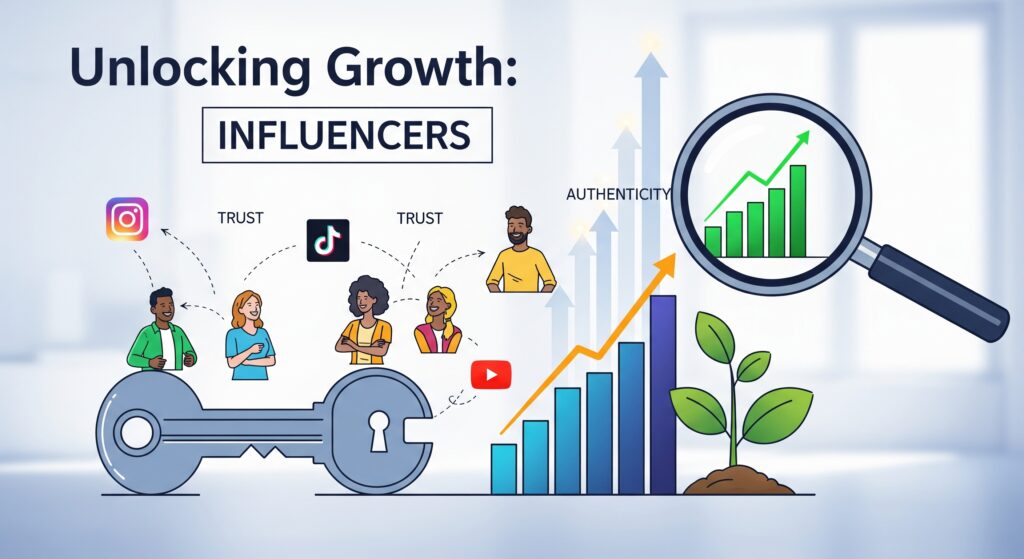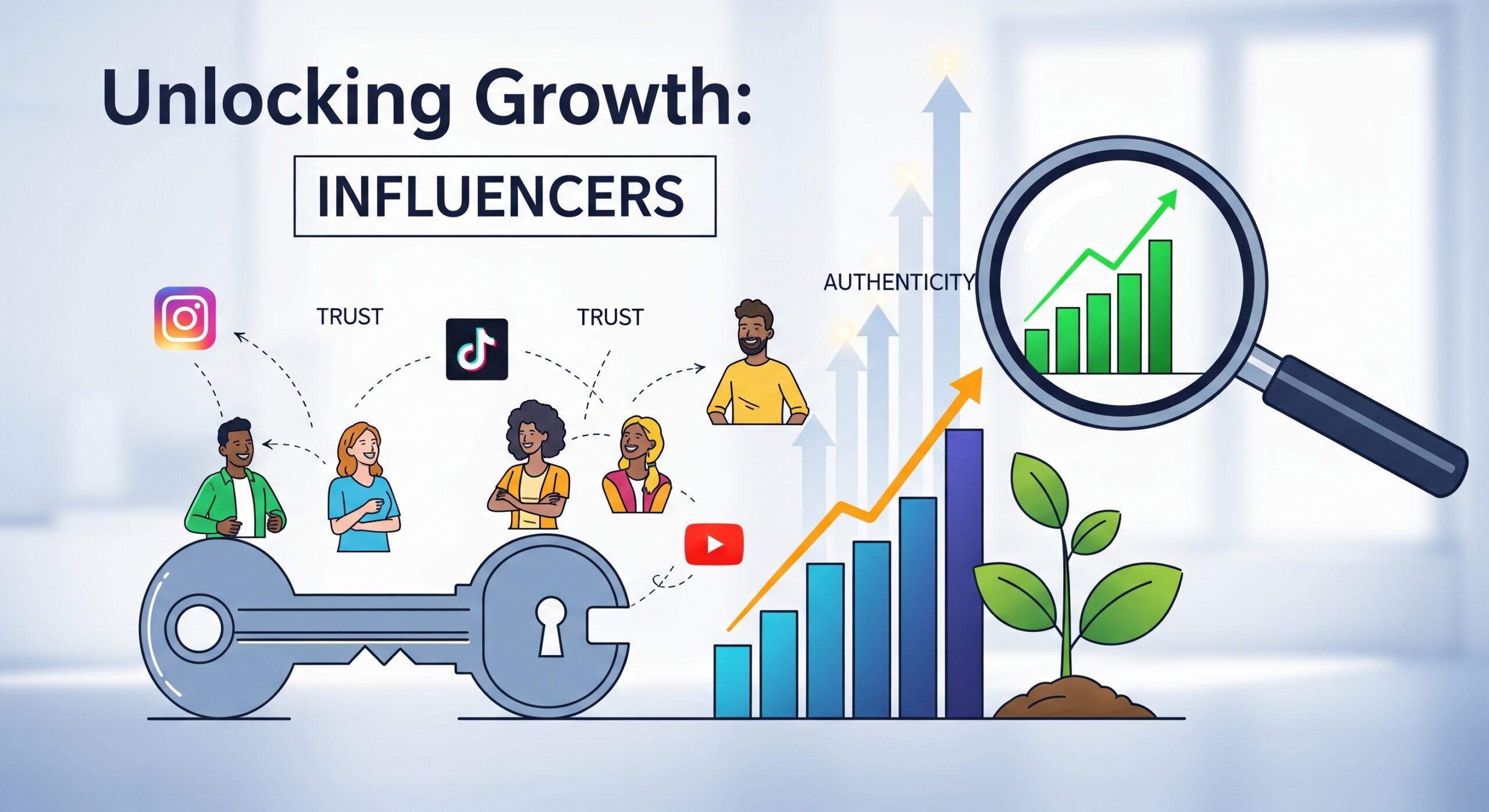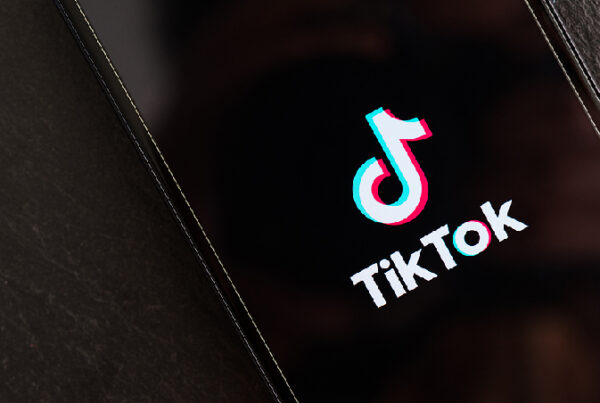
In today’s fast-paced digital world, traditional advertising faces growing challenges. Consumers are increasingly turning away from conventional ads, instead placing their trust in recommendations from peers and trusted voices. This shift in consumer behaviour begs a crucial question for marketers: Why has influencer marketing become a cornerstone of successful brand strategies?
The answer is clear: influencer marketing is not just a trend but a powerful, effective, and essential strategy. It excels due to its unique ability to foster authenticity, drive genuine engagement, and deliver measurable results. This article will explore the core reasons for its undeniable power and illustrate its effectiveness through compelling real-world case studies.
Why Influencer Marketing: The Fundamental Appeal
Influencer marketing has risen to prominence by addressing key challenges modern brands face:
- Authenticity and Trust: In an era of scepticism, influencers build genuine connections. They tap into a human desire for authentic recommendations, making brand messages feel more like trusted advice than a sales pitch.
- Reaching the Unreachable: Consumers are fragmented across countless digital platforms and niche communities. Influencers provide direct access to these targeted, often highly engaged, audiences that might be difficult to reach through traditional channels.
- Cutting Through the Noise: The digital landscape is cluttered with advertising. Influencers help brands stand out by integrating products and services into relatable stories and content formats that audiences actively seek out and consume.
- Shaping Purchase Decisions: The trust influencers cultivate directly impact consumer behaviour. Their endorsements can quickly move an audience from awareness to consideration and, ultimately, to purchase.
Why Influencer Marketing Works: Mechanisms of Effectiveness
The effectiveness of influencer marketing stems from its deep understanding of consumer psychology and digital dynamics:
- Relatability & Empathy: Influencers present products and services in real-life contexts. This allows audiences to see how a product fits into their own lives, fostering empathy and making the offering more appealing.
- Social Proof & Validation: When an influencer uses and recommends a product, it acts as powerful social proof. People are naturally more likely to trust and try something validated by someone they admire or relate to.
- Content That Converts: Influencers are masters of creating engaging, platform-native content. From compelling video stories to informative how-to guides, their content often includes clear, organic calls to action that drive specific behaviours, such as visiting a website, downloading an app, or making a purchase.
- Algorithmic Advantage: Social media algorithms increasingly favour authentic, engaging content. Influencer content, by its very nature, is often designed to maximise engagement signals like watch time, shares, and saves, giving it a natural boost in organic reach.
The Importance and Effectiveness of Influencer Marketing
Beyond its fundamental appeal and effective mechanisms, influencer marketing is critically important for sustained brand success:
- Building Brand Awareness & Recognition: Influencers can rapidly expand a brand’s reach to highly relevant audiences, quickly putting products in front of potential customers who might otherwise never discover them.
- Driving Engagement & Conversation: Influencer campaigns naturally foster two-way dialogue. Comments, shares, and direct messages create a vibrant conversation around your brand, building a community of engaged advocates.
- Generating Qualified Leads & Sales: When integrated strategically, influencer marketing can directly impact the bottom line by driving website traffic, app downloads, and direct sales.
- Cost-Effectiveness & ROI: Compared to traditional advertising, influencer marketing can often deliver superior returns on investment, especially when targeting niche audiences with authentic creators.
- Long-Term Brand Advocacy: Successful collaborations can transform engaged consumers into loyal fans and ongoing brand advocates, providing sustained word-of-mouth marketing.
- Adaptability to Market Trends: Influencer marketing is inherently agile. It can quickly adapt to new platform features, trending content formats, and evolving consumer behaviours, keeping brands relevant in a dynamic digital landscape.
Influencer Marketing Case Studies: Real-World Impact
Brand: Airalo
- Objective: The primary goal for Airalo, a global eSIM provider, was to raise brand awareness and increase its recognition across Southeast Asia.
- Strategy: The campaign engaged lifestyle and travel creators throughout SEA. These creators shared how Airalo serves as their go-to eSIM solution, emphasising the key message: “Stay Connected Wherever You Travel”. The campaign notably shifted its creator selection strategy during its duration; initially selecting creators based on ‘performance fit’ (high link clicks) for acquisition, it later focused on ‘creator fit’ (travel and lifestyle creators) to achieve broader brand awareness.
- Why it Works & Effectiveness:
- Authenticity: Some participating creators were already familiar with Airalo and were existing customers themselves. This pre-existing product use significantly boosted the authenticity and credibility of their content.
- Content Relevance: The campaign’s content was highly relatable and beneficial, tapping into the prevailing “revenge travelling” trend. Audiences were actively looking for convenient and affordable ways to access data abroad.
- Strong Engagement: The campaign generated a massive total outreach of 572,688,607 across Southeast Asia, significantly exceeding target outreach numbers in most countries. On Instagram, Vietnam achieved the highest engagement rate by plays and outreach, suggesting well-targeted and resonant content. On TikTok, Malaysia demonstrated the best performance with its top-ranking engagement rate by plays and a high play rate by outreach, indicating highly compelling content.
- Audience Insights: The campaign provided valuable insights into regional audience preferences. For example, TikTok analysis showed Vietnam audiences tended to use “Likes” as a key metric of engagement, while the Philippines saw lower likes but higher shares and favourites, indicating varied engagement behaviours across regions. Audience queries about data coverage, plan duration, or even specific destinations like China also provided valuable feedback.
- Conversion Observation: While achieving high engagement, the campaign’s observations highlighted that “countries with high engagement on social platforms do not always correlate with high conversion rates (app installs, sign-ups),” as seen in Indonesia and Vietnam. However, Malaysia proved to be the most effective market in terms of both engagement and conversion.
Conclusion: Influencer Marketing – A Strategic Imperative for Modern Marketing
In conclusion, influencer marketing is far from a fading trend; it is a strategic imperative for modern brands. Its power lies in its unique ability to build genuine trust, ignite authentic conversations, and drive measurable results that directly impact business growth.
From increasing brand awareness and fostering deep engagement to generating qualified leads and sales, influencer marketing offers a dynamic pathway to connect with today’s discerning consumers. The success stories of Airalo powerfully illustrate how targeted creator collaborations, authentic content, and a clear understanding of platform dynamics can translate digital influence into tangible market impact. By integrating influencer marketing into their core strategy, brands can unlock unparalleled growth and achieve sustainable success in the ever-evolving digital landscape.







